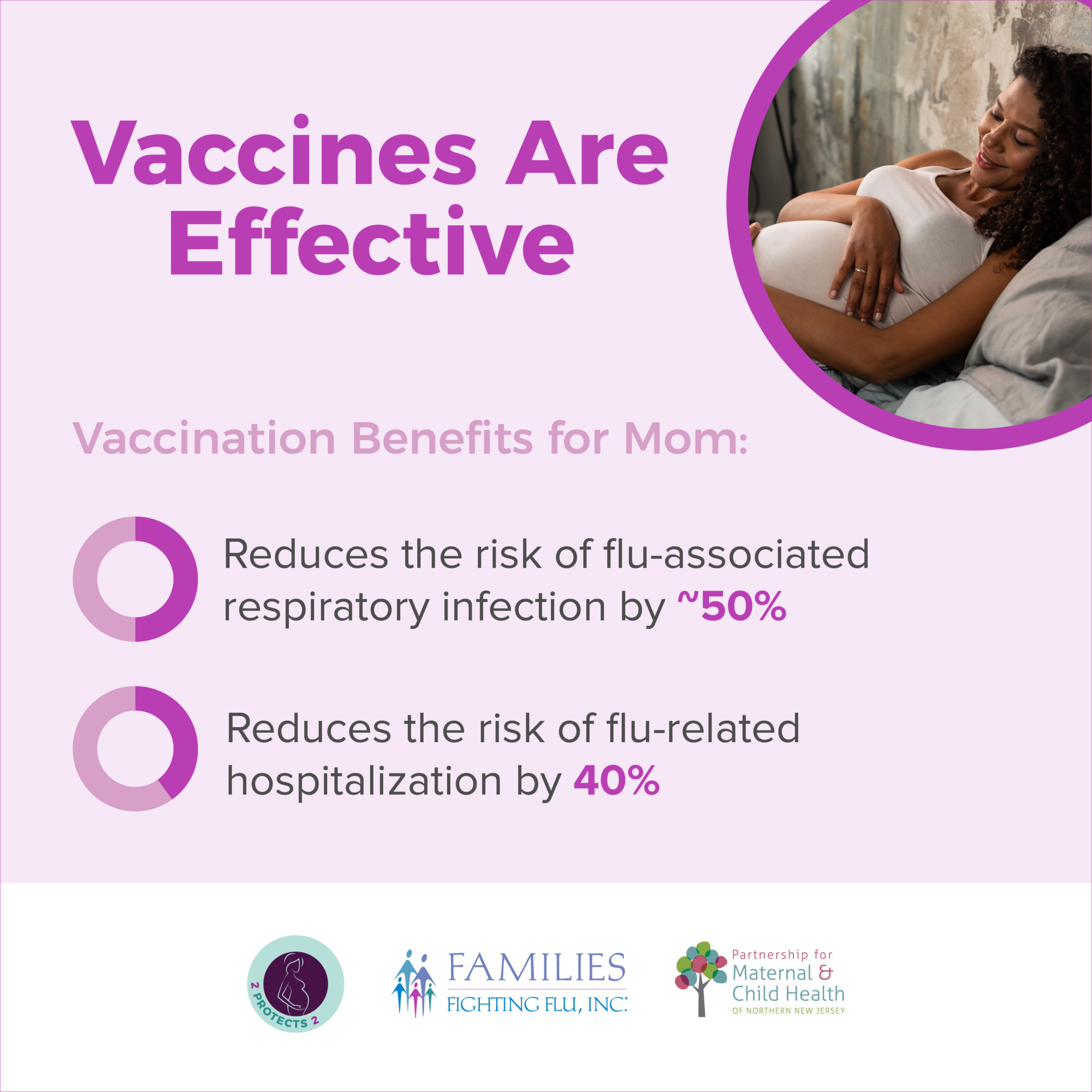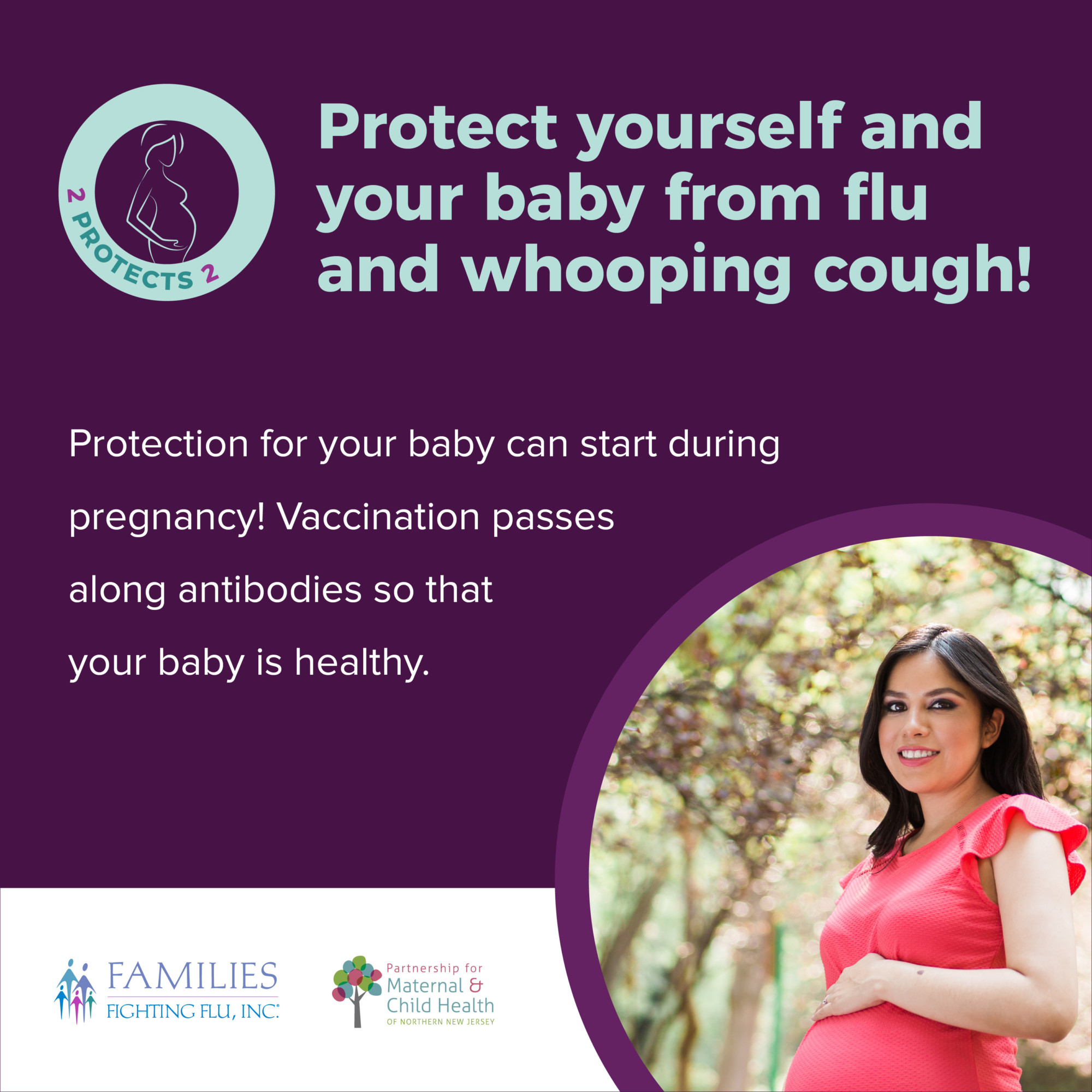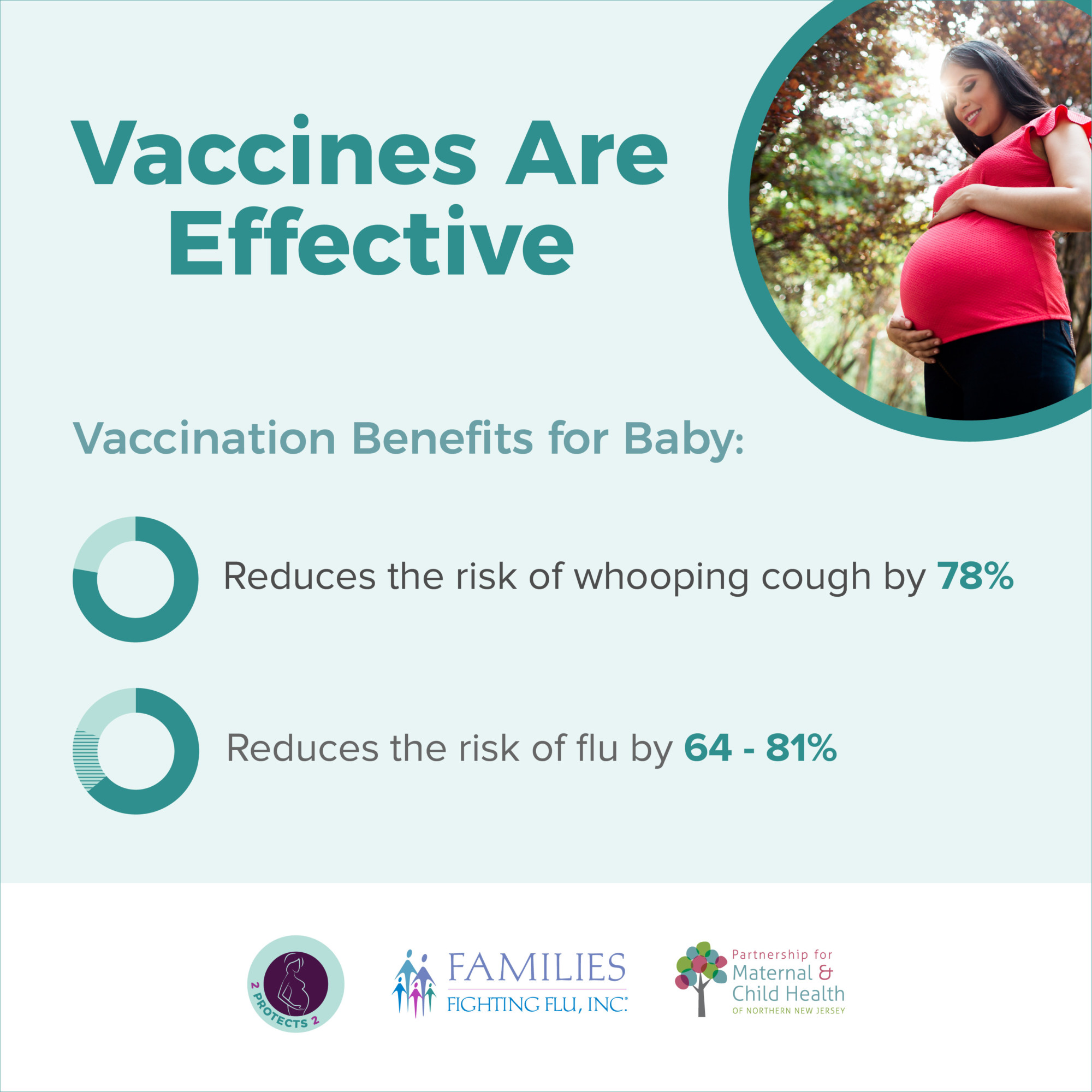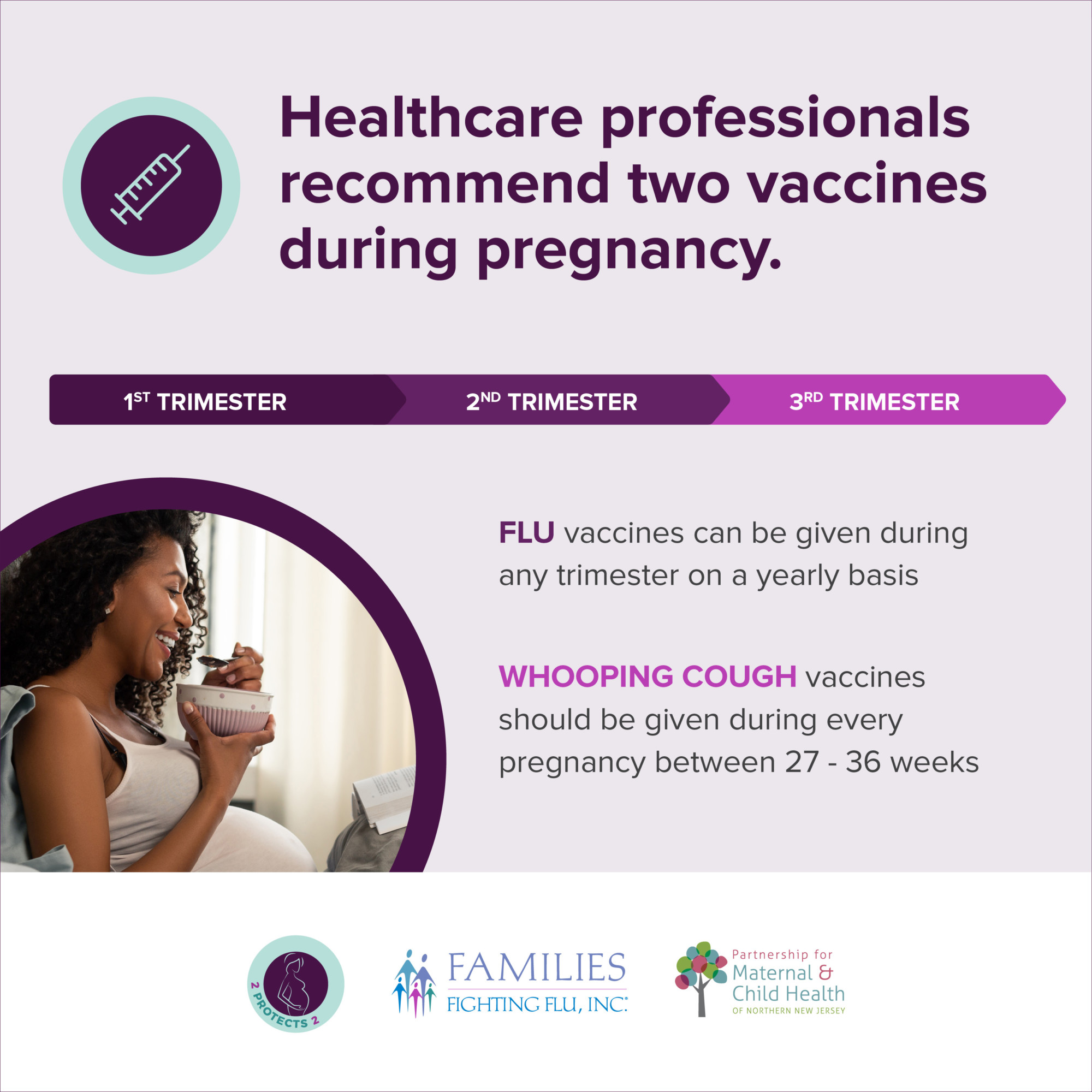Flu and Pregnancy
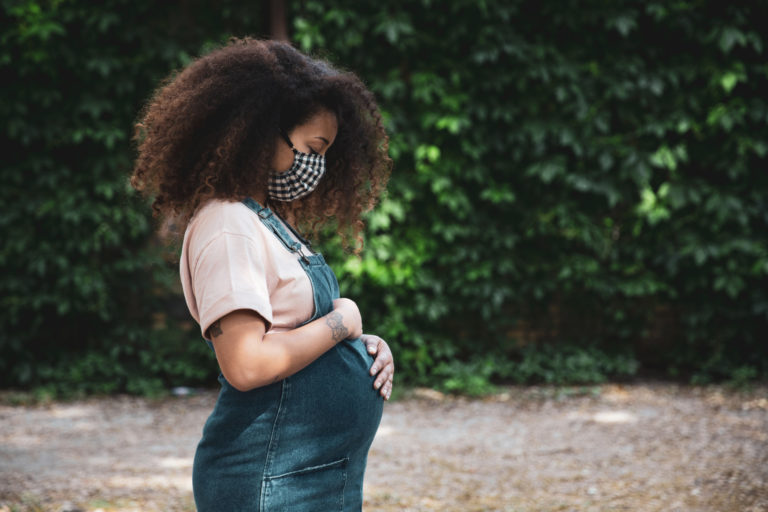
Because pregnancy causes changes to the immune system, heart, and lung function, pregnant women (and women up to two weeks postpartum) are more likely to experience complications from the flu. Flu vaccines can be given during any trimester.
Why Get Vaccinated While Pregnant?
- The flu is serious: having the flu while pregnant can increase the risk of premature labor and delivery, hospitalization, or even death
- Flu vaccines can prevent serious outcomes: getting a flu shot reduces a pregnant person’s risk of being hospitalized with flu by 40%
- Flu vaccines can prevent illness: Flu shots during pregnancy reduce the risk of flu-associated acute respiratory infection in pregnant people by 50%

Impact of Flu On Babies
Since infants can’t receive a flu vaccine until they are six months of age, getting a flu vaccine in pregnancy is the best way to pass on protection to your newborn. Studies show that babies born to mothers who’ve received a flu vaccine during pregnancy are:
70% less likely
to suffer with flu
81% less likely
to be hospitalized for flu

Anakin was born 10 weeks premature as a result of his mother contracting influenza while pregnant. He now suffers from chronic lung disease.
Download our social media graphics about the importance of vaccination during pregnancy:
Visit these other pages to learn more:
Page last reviewed: November 2021.

